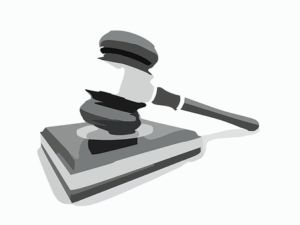You may find yourself in the best position to act as a witness in a case pending before a court of law for some reasons which include the fact that you are either the plaintiff or the defendant directly involved in the case. It may also be that you are an eye witness to the factual events in a case though not directly involving you; or that you are simply conversant with the facts of a case involving a company or firm in which you work and you have been chosen to testify on behalf of the organisation. Your attendance in court as a witness may be voluntary or based on a court order by way of subpoena, which order you are bound to obey.
Whichever the case, it is important you read the following before you enter that witness box (or witness stand) to testify:

1. Prepare yourself and refresh your memory.
Just like a student preparing to enter an examination hall, you need to prepare adequately before you enter the witness box. To act as a witness is to present yourself for series of questioning both by your lawyer (or the lawyer acting on behalf of the party in whose favour you were called to testify) and the lawyer at the opposing end. You need to make sure you know the facts of the case and the surrounding events. Read through important documents relating to the matter and master the key issues without memorising anything. In this era (especially in civil cases) where your initial or main testimony is required by the rules of court to be in writing and sworn before the commissioner for oaths, you need to go through same properly before and after it is sworn to by you. Note that in majority of the cases, your lawyer might have assisted you in drafting the sworn statement. So, ensure you are conversant with the contents. Participate fully in the preparatory process with your attorney. The opposing lawyer would have to test the veracity of your original testimony by way of cross examination and you need to be ready for the exercise, bearing in mind some of the points discussed below.
2. Be punctual.
The court, like time and tide, waits for no one. Make sure you arrive at the court in good time. Ensure you seek prior directions and have an estimate of what it would take to be in court early. Court sits at 9 am. if the hearing was slated for a specific time like 12 noon, your attorney would inform you.
3. You are free to request to sit down.
The usual practice is that when you enter the witness box, you may or may not find a seat inside the box. If there is none, a decent Judge would direct that one be immediately provided. In advanced countries, sitting has become common unlike here in Nigeria where the traditional practice of standing still holds sway. Oftentimes, lawyers apply to the court praying that their client/witness be permitted to sit. Thus, you may want to let your attorney know before the proceedings that you would like to sit. Where you are already in the witness box and you later desire to sit, feel free to humbly seek the permission of the Judge to sit down if it will make you more comfortable and especially if you are not strong enough to continue standing.
4. Dress properly.
What amounts to proper dressing may be relative. Nevertheless, dress in the manner you would want to be addressed. You have heard this often. Note however that some Judges would prefer to see you formally dressed. You may want to avoid your cultural attire because the occasion is not a cultural day. The court is not a disco house or fashion show room. Be mindful. The underlying point is that you should dress in a manner that makes you confident but without causing needless attraction which might be distracting.
5. Tell the truth.
The primarily reason for your attendance in court as a witness is to tell the truth in order to assist the court settle the dispute and arrive at a just decision. Note that it is a crime to tell lies or to mislead the court. You need to be coherent and consistent in your narrative and answer to questions. State the facts as you know it in your own words. Attorneys are trained to know when you are lying and if shown to be so, your credibility would be damaged.

6. Focus on the Judge.
You need to always look at the Judge and maintain eye contact with him. Direct all your answers to the Judge. Note that your concern should be that the Judge believes the truth of what you say. As for the opposing lawyer, he has one mission, to demolish your evidence and discredit your testimony before the court. So, focus on the Judge. What the Judge thinks of you and your story matters the most.
7. Give direct answers.
It is important that you give direct and clear answers to questions. Be concise. No rambling. Otherwise, you would be regarded as being evasive. There is usually no point being too logical or calculative in trying to assume what the lawyer intends to achieve with a given question. Also, give verbal answers. For instance, avoid nodding your head as a “yes” answer. In addition, do not answer a question with a question. It is also important that you do not answer questions suggestive of absolute certainty. For instance, never say, ‘that is all that occurred’. Instead, say, ‘that is all I can remember’.
8. Do not answer what you were not asked.
Always bear in mind that being in a witness box is not the same as being in a studio, answering questions like a celebrity or politician. Focus only on the question asked and do not supply any information not asked of you. Otherwise, you will not only prolong your stay in the witness box needlessly but you may be confronted with questions you never bargained for.
9. Explain your answer if you must.
In addition to supplying direct answers, which may simply be a “yes” or “no”, feel free to explain further if necessary. The opposing lawyer may not like your explanations especially where (s)he finds your yes or no answer favourable. Move to explain anyway, focusing on the Judge. The Judge will most likely allow you to explain.
10. Correct your mistake.
Do not hesitate to correct your mistake if any and at the earliest. Politely seek the permission of the court to do this. Ordinarily, there is the tendency that you may be taken to be speaking from both sides of your mouth. Nevertheless, a Judge knows when to accommodate an honest mistake. Thus, correct any error you might have inadvertently committed.
11. Listen carefully.
If you want to have a great outing in the witness box, then you have to be quite attentive. Feel free to ask the lawyer questioning you to repeat the question where necessary. Ensure you are not absent minded. Listen to understand. If a lawyer reads the contents of a particular document to you but you feel you would be better of if you read same yourself, ask that the document, with reference to the particular section, be shown to you. If your request is not granted, then listen attentively to what is being read to you. If the Judge says anything, listen to it.
12. You do not have to know all the answers.
When confronted with a question, the answer to which you do not know, feel free to say you have no idea. Avoid supplying answers shrouded in uncertainties. An attempt to answer a question you apparently do not know the answer could be ‘suicidal’. In addition, if perhaps you could not recall an answer to a question, simply say so. If you think you need to look at a given document to refresh your memory, indicate.

13. Think before you answer.
There is no reward for supplying answers with the speed of light. Think properly before you speak. Furthermore, do not attempt to answer the question until the questioner has finished with the question. Resist any pressure from the opposing lawyer. Yet, you do not want to keep the Judge waiting for your answer like a suitor waiting on his knees for a “yes” to his “will you marry me” question. Think fast. Too much delay may tend to suggest you are framing up something to tell.
14. Be respectful in your use of language.
It is important that you choose your words carefully and be quite respectful in answering your questions. Avoid any use of offensive or uncouth language.
15. Be composed, confident and positive.
If the opposing lawyer flares up, looking upset, keep your cool. You have him. Do not be shaken. No doubt, the opposing attorney may tend to say one or two things you may consider offensive. You are however required to maintain decorum always, ensuring you do not lose your temper. Your lawyer knows what to do to protect you always and the court will most likely not hesitate to come to your aid. Be mindful always that the Judge observes your demeanor. Being audible also goes to show your composure and confidence.
16. Follow the trial event closely.
Now, you need to pay close attention to the entire event taking place in court. During cross-examination, the opposing lawyer plans to have you tell an entirely different story from the one you told originally (during your examination-in-chief). This will help him in discrediting you to the advantage of his client on the other side. Any incautious display of irreconcilable inconsistencies in your answers or narrative may be fatally detrimental to your case or the case of the party on whose behalf you are testifying.
17. Do not step down until you are told to do so.
At the end of your testimony as a witness, the court would inform you that you are discharged. It is only at this time that you are permitted to step down from the witness box. Until then, do not leave.
Best of luck!















